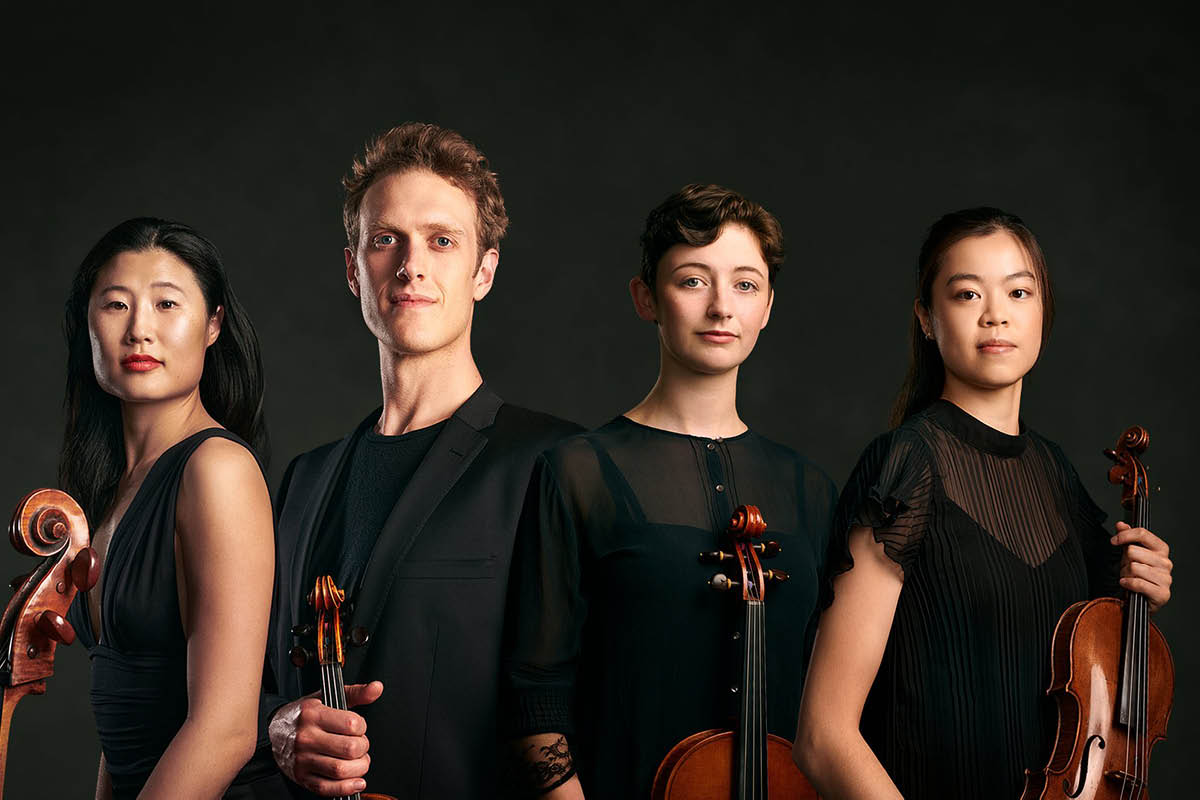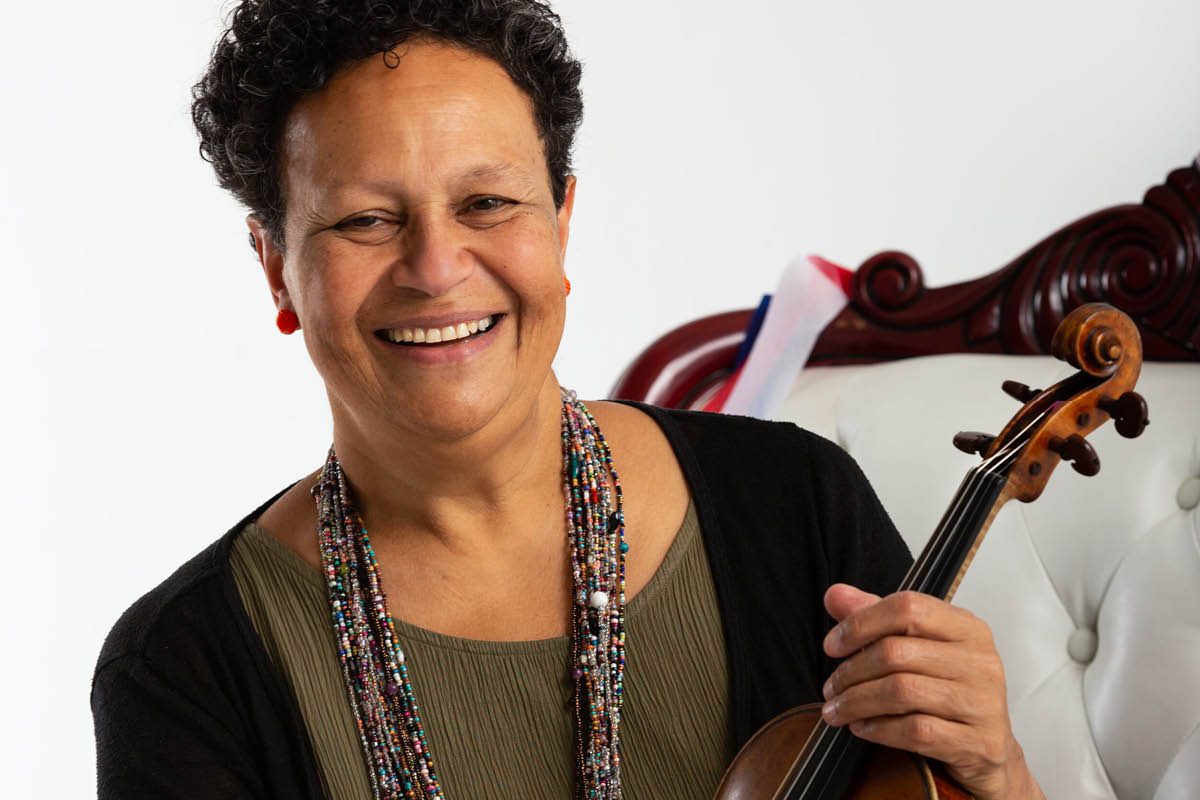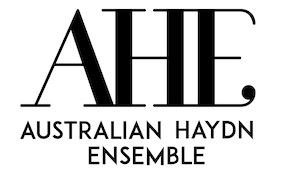In July, Musica Viva Australia will bring some of the world’s most exciting young chamber musicians to Australia to compete in the Melbourne International Chamber Music Competition (MICMC).
Established in 1991, the event is usually held every four years, but the 2023 iteration had to be postponed a year due to COVID. The delay did nothing to dampen enthusiasm, with a record number of entries.
Open to string quartets and piano trios in which all members are under the age of 36, MICMC offers a prize pool of over $150,000, including the $30,000 Monash University Grand Prize.
This year, there were 60 entries, from which 14 ensembles have been selected to compete in the Preliminary Round. They feature musicians from Australia, Canada, China, France, Israel, Italy, Latvia, South Korea, Spain, the Netherlands, the US and Venezuela. Ten ensembles will advance to the Semi-Finals, then three string quartets and three piano trios will compete in the Grand Final.

The Affinity Quartet will compete at the Melbourne International Chamber Music Competition . Photo supplied
Australia’s Affinity Quartet is among the competitors. Formed in 2015 by students at the Australian National Academy of Music (ANAM), and currently based in Europe, the quartet won second prize in the string quartet category at the 2023 International Mozart Competition in Salzburg, and was placed third in the 2022 Wigmore Hall International String Quartet Competition. This month, Affinity Quartet will return to Melbourne to perform in the ANAM Quartetthaus at Melbourne Museum, where 56 concerts, celebrating British and Australian chamber music, will be presented, 3–14 May.
“Being selected for any international competition is a thrilling opportunity, but the Melbourne International [Chamber Music Competition], which is in our home city and only held every four years, is one that Affinity Quartet has been really holding out for, especially seeing that the pandemic years meant a postponement,” says cellist Mee Na Lojewski. “We’re also very honoured to return to Melbourne as the only all-Australian group in the competition.”
Asked what makes MICMC special, Wilma Smith, Musica Viva Australia’s Artistic Director of Competitions, says, “We fly our successful groups from all over the world to Melbourne to compete in the live rounds, providing them with accommodation and rehearsal space and matching each group with a local ‘host’ who is theirs for the duration of the competition to answer questions, give local advice, support them as they play throughout the week and perhaps even take them sightseeing if they have time after they finish playing. Some groups maintain a relationship with their Melbourne hosts long after the competition has ended and many say it makes MICMC special. Of course, for the audience, what’s special is the intensity of the week-long experience, the incredible level of playing and the fact that we will undoubtedly see and hear groups who will become stars on the world stage.”
The 14 ensembles were chosen by Smith and two Preliminary Round judges – cellist and music educator Josephine Vains, and pianist, producer and educator Caroline Almonte.
“It was a very difficult task, and that’s why we have a panel of three; it’s really good to spread that responsibility, and to have the chance to discuss certain aspects necessary to separate groups that might be really close. It’s not a job I’d want to do on my own,” says Smith.

Wilma Smith. Photo © Agatha Yim
Asked about selection criteria, she says, “It’s up to each panel member to decide for themselves, but technique, of course, is very important, which, in the chamber music context, means playing together, in tune, and with a unified approach to the piece they’re performing. At this level, that’s pretty much a given. What I look for in addition is an extra level of communicative power and musical insight, along with nuance and beauty of sound – things that are, in a way, subjective. But that’s why we have multiple people to do the listening.”
In Round 2, the ensembles will perform a new piece of specially commissioned music by Australian composers Maria Grenfell and Lee Bradshaw. Their brief was to write something challenging, running around 10 to 15 minutes.
Grenfell has composed an 11-minute piano trio called Bitter Tears.
“Musically the piece is quite intense, as it reflects on the loss of life through war. I have re-composed an old Lenten hymn tune as the main musical idea on which the piece is based. It is quite virtuosic, with metre changes, tempo variations, some aleatory [where the music is left to chance] near the end, and difficult passagework for all three players. I think it’s quite an emotionally intense piece, so it becomes just as much about communication, and not just about getting all the notes in the right place.”
Bradshaw has composed a 15-minute string quartet called Resolve.
“In an explicit sense, the technical difficulties are all the usual suspects. But where the challenge lies – and where the fun is – is in seeing how the ensembles assign character to the work. I think the music has plenty of ‘mongrel’ in it, which I hope – if recognised by the players – is a liberating quality,” he says.
“I guess I would describe my writing as expressionism, or if you want to be clever, post-modern expressionism,” adds Bradshaw. “I don’t want to say too much about the work itself in case I back the players into a corner. Part of this process is to see which ensembles can find their own creative voices in the work without being told, especially by me, what it is, or what it should be.”
“It’s always interesting to see what these groups bring to [a new work], because of course, these are pieces that are not recorded,” says Smith. “They can’t go on YouTube and find out how other people have performed it, so it’s a really good way to draw out what each group brings to a score themselves, freshly and independently.”
The Melbourne International Chamber Music Competition runs 3–9 July. Rounds 1, 2 and the Semi-Finals will take place at Hawthorn Arts Centre, with the Grand Final at Melbourne Recital Centre.













Comments
Log in to join the conversation.